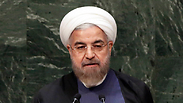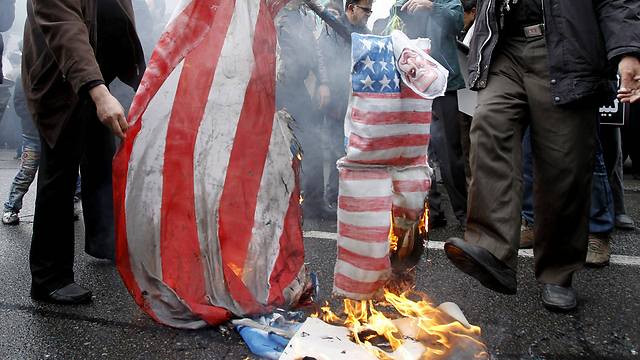
Iranian President Hassan Rouhani speaks at the UN.
Photo: AP
A US think-tank said Iran may have violated last year's interim nuclear deal with world powers by stepping up efforts to develop a machine that could enrich uranium faster, but another expert group said it saw no breach.
Iran's development of advanced enrichment centrifuges is sensitive because, if successful, it could enable the country to produce potential nuclear bomb material at a rate several times that of the decades-old model now in use.
Western officials were not immediately available to comment on the allegation by the Washington-based Institute for Science and International Security (ISIS), which closely tracks Iran's nuclear program. There was no immediate comment from Tehran.
The think-tank, whose founder David Albright often briefs US lawmakers and others on nuclear proliferation issues, cited a finding in a new report by the International Atomic Energy Agency (IAEA) about Iran.
The confidential document, issued to IAEA member states on Friday, said Iran since the UN agency's previous report in September had "intermittently" been feeding natural uranium gas into a single so-called IR-5 centrifuge at a research facility.
The IR-5 is one of several new models that Iran has been seeking to develop to replace the erratic, 1970s vintage IR-1 centrifuge that it now uses to produce refined uranium.
But unlike other advanced models under development - IR-2m, IR-4 and IR-6 - at a research site at its Natanz enrichment plant, Iran had until now not fed the IR-5 with uranium gas.
"Iran may have violated (the interim deal) by starting to feed (natural uranium gas) into one of its advanced centrifuges, namely the IR-5 centrifuge," the think-tank said in an analysis of the IAEA report. "Under the interim deal, this centrifuge should not have been fed with (gas) as reported in this safeguards report."
But the Washington-based Arms Control Association said it did not believe it violated the deal. "The latest IAEA report says clearly that no enriched uranium is being withdrawn from the machine," the research and advocacy group said in an email.
Iran says it produces low-enriched uranium to make fuel for nuclear power plants. But if processed much further, refined uranium could be turned into the explosive core of a bomb, which the West fears may be the country's latent goal.
Tehran denies looking to build nuclear weapons.
Under last year's deal with the United States, Russia, China, France, Germany and Britain, Iran can continue its "current enrichment R&D (research and development) practices", language that implies it should not expand them.
The text of the publicly released agreement did not elaborate on this point, potentially leaving it open for interpretation.
It was one of the thorniest issues to resolve in the negotiations on the temporary accord, which was designed to buy time for talks on a permanent settlement by a November 24 deadline. It is expected to be a key issue also in any long-term deal.
















